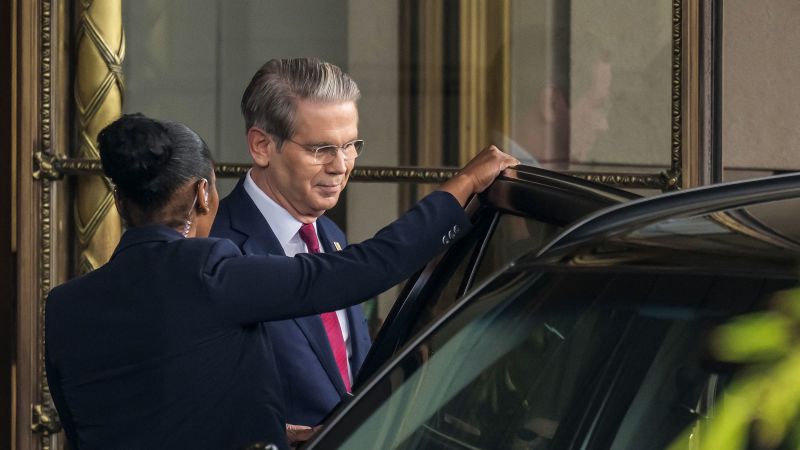Trade relations between the United States and China have entered a new chapter, as indicated by the commencement of trade talks in Geneva, Switzerland. This development, reported by Chinese state media, signals a potential thaw in the long-standing trade conflict ignited by former President Donald Trump’s imposition of high tariffs on Chinese imports. The trade war’s aftermath has significantly altered the economic landscape for both countries, bringing to the forefront the complexities of international trade dynamics.
Leading the discussions for China is Vice Premier He Lifeng, while the United States is represented by Treasury Secretary Scott Bessent. According to a report by China’s state broadcaster CCTV, Bessent emphasized the importance of these meetings, even while managing expectations by stating that a sweeping trade agreement should not be anticipated as an immediate outcome. Instead, he highlighted the significance of initiating dialogue and rebuilding the channels of communication that have been strained in recent years.
The ramifications of the heavy tariffs imposed by both nations have reverberated through their economies. The U.S. has enforced tariffs exceeding 145% on a majority of Chinese imports, compelling China to retaliate with tariffs of around 125% on U.S. goods. Consequently, there has been a marked decline in trade activities between the two economic giants, as logistics experts have pointed out. In particular, economists have noted that merely reducing these tariff rates may not suffice to reactivate trade volumes. A threshold of approximately 50% reduction in tariffs has been identified as critical for re-establishing a semblance of normalcy in trade.
Further complicating matters, just prior to the delegates’ meeting, former President Trump indicated that he might consider slashing tariffs even more drastically, voicing that an 80% tariff on Chinese imports “seemed right” while simultaneously urging China to open its markets to American businesses. These comments illustrate the ongoing tension and the fluctuating strategies surrounding the U.S.-China trade relationship.
The trade war has already begun to impact the lives of American consumers. Experts from Goldman Sachs noted that inflation, a growing concern, is likely to climb significantly as a direct consequence of the deteriorating trade relations, projecting a rise in inflation figures to around 4% by year’s end. Additionally, the supply chain disruptions caused by the tariffs have led to increased prices for a wide variety of consumer goods in the U.S., while also constraining the availability of Chinese imports—many of which are essential for everyday American life, encompassing products ranging from clothing to electronics.
As the U.S. gears up for a potential economic downturn, the National Retail Federation has forecast a stark decline of at least 20% in overall imports into the United States for the latter half of 2025, with an even more severe estimate from JPMorgan predicting a staggering 75% to 80% drop in imports directly from China.
The implications of these trade dynamics extend beyond the U.S. shores, adversely affecting the Chinese economy as well. For instance, recent data indicated a sharp drop in China’s exports to the U.S., plummeting 21% year-on-year in April 2024. Amidst these challenges, the contraction of Chinese factory activity is emerging as a significant concern, prompting the Chinese government to explore economic stimulus measures to counteract the turmoil created by the tariffs.
As both nations initiate dialogue in Geneva, the prospect of moving towards a more equitable and cooperative economic relationship appears cautiously optimistic. This moment serves as a critical juncture, considering that the U.S. and China represent the two largest economies globally, a reality that extends beyond any animosities of recent years.
Moreover, Trump has expressed intentions to leverage the case of Jimmy Lai, a jailed Hong Kong media tycoon, in negotiations, highlighting the complex interplay between economic discussions and human rights issues. While his remarks allude to broader discussions, CCTV has not confirmed whether the issue of Lai’s imprisonment will feature prominently in the upcoming dialogue.
In conclusion, as this developing story unfolds, the world watches closely to see if these talks will yield tangible benefits for both nations and pave the way to a revitalized trading partnership. Ongoing updates will likely reshape the global economic landscape as developments arise.



